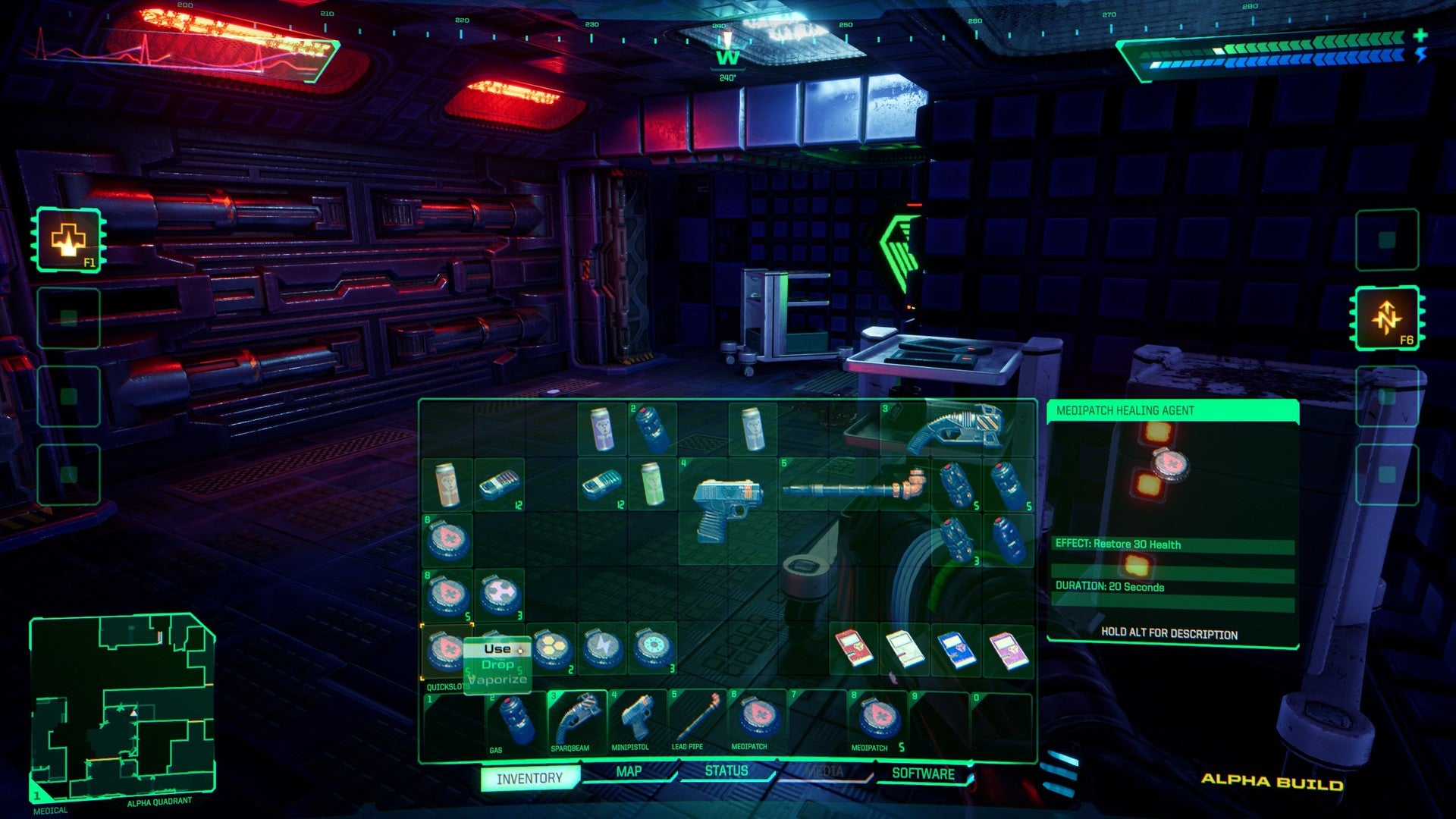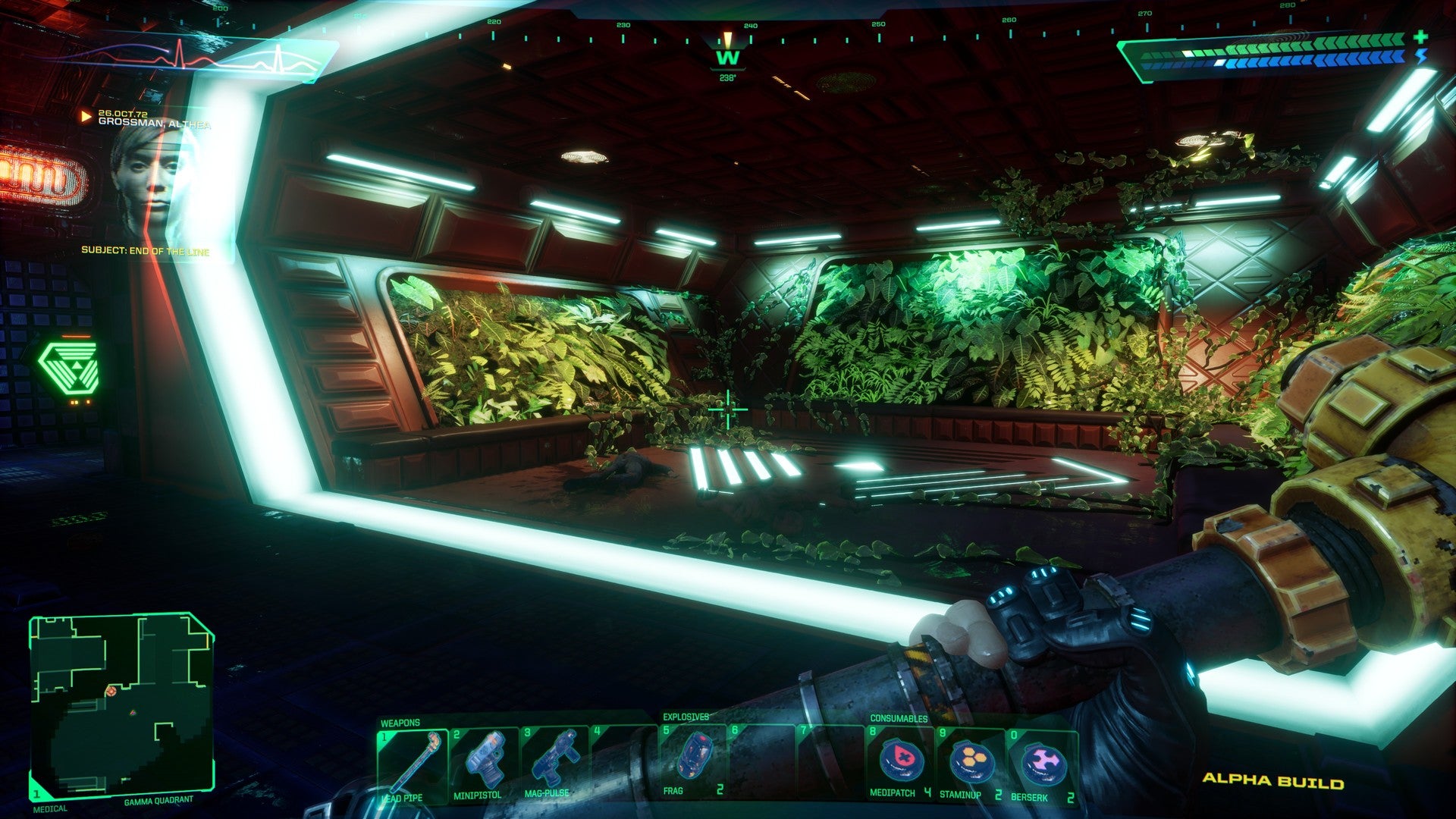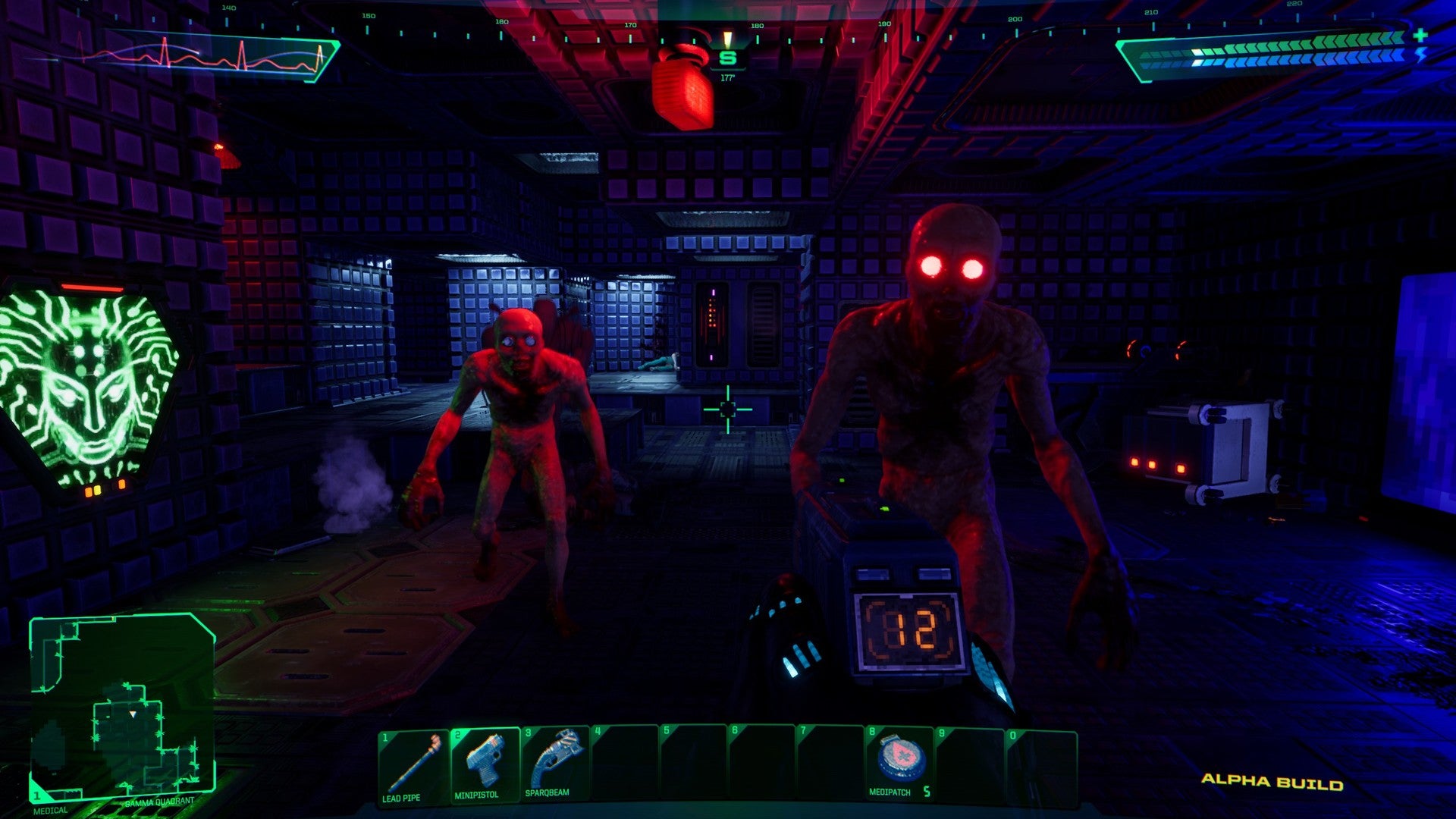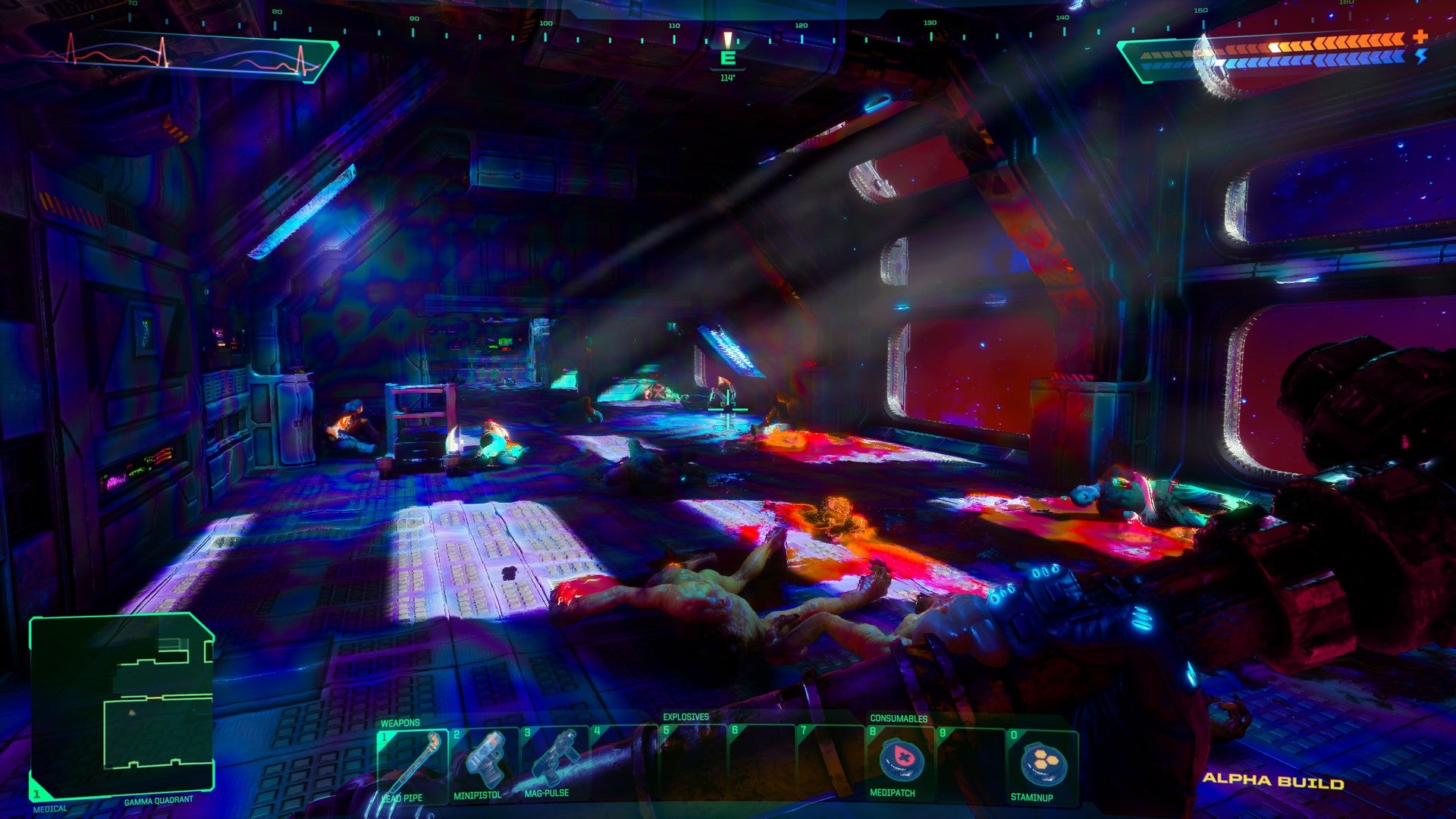But it’s likely a part of games history that’s lost on a lot of people. Games that came along later, were available on more platforms, and appealed more to a generation of game-players on Twitter and social media platforms, redefined survival horror. Ken Levine and his action/horror splice of genres in BioShock stole System Shock’s thunder, and morphed the entire genre into its own image. Visceral and Dead Space shunted the genre into the hands of Call of Duty players. Both helped usher the genre away from survival horror, and more towards action horror. Glen Schofield gleefully watching on as one million Isaac Clarkes shot off countless alien limbs, Ken Levine purred as one million Booker DeWitts found one million lighthouses and predicted one million plot twists. Each of these games toyed with genre convention to deliver something markedly different from System Shock… yet neither of them would exist without Looking Glass Studios’ masterful debut. As a remake, the 2022 version of the game fires on all the same cylinders that made the original so special: the game kicks off with a bang, with you – as an unnamed hacker – immidiately biting off more than you can chew and being forced into a dangerous world of rebellious AI, murderous mutants, and science gone mad. Think of the start of The Matrix if it was directed by David Cronenberg, or Alice in Wonderland via H.R. Giger, and you’ll have a taste of what to expect. From here, you’re pushed like a rat in a science experiment into the maze-like, claustrophobic spaceship that was – once upon a time – inspired by iD games like Doom or Wolfenstein. Unlike those games, though, Looking Glass pumped all of its research and development budget into emergent systems; an intricate web of complementary mechanics that played into the game’s open-ended level design. Player choice, enemy efficacy, powers, weapons, and systems all danced around each other – this ballet of tiny moving parts – to create a piece of interactive genius that was greater than the sum of its parts. The studio behind the remake, Nightdive Studios, can never rebottle this lightening: that (space)ship has sailed. But in lieu of redefining the industry once again, it can do the next best thing: code a love-letter this piece of gaming history, and make it available to anyone and everyone that wants to play it, whilst amplifying what made the original game so special. After a hands-on demo with the game at Gamescom 2022, I was taken aback with how much effort has gone into the remake. This isn’t some cynical cash-in, or some half-hearted asset flip, no: from the opening crawl as your hacker avatar is whisked away into terrible wonderland of SHODAN’s making, you get the feel that you’re reliving something special. The gaming equivalent of watching your favourite rock band do their hit 1997 album, cover to cover, or something. All the best bits, all the stuff that gave you gooseflesh before. Just a bit newer, a bit different, a bit uncanny. The core hook of System Shock is still how it frames you, player, as a vulnerable, ordinary character, completely reduced to nothing but meat – to nothing but a paranoid wreck, pressing your virtual ear to a virtual door to see if there’s some sort of genetic abomination standing on the other side with a shotgun aimed level to your face. But, as is right in this universe, you’ll soon become bloated on powers, weapons, options. You can pick up anything – anything! – and use it, if you think it’ll help. Just try not to be too indecisive, because even a moment of hesitation in the wrong moment will see one of the wandering cybernetic juggernauts smear your brains over the ship walls like paste. And you don’t want that. You want to survive, right? Lucky for you, Nightdive Studios has altered the opening a touch compared to the original – unlike Warren Spector’s original, there is something of a tutorial in this game, a suite of handholding flash cards and interactions that serve to introduce you to the more ‘immersive sim’ aspects of the sci-fi spectacle. It doesn’t detract from the feel of it all, at all. In fact, I’d argue that in 2022, you need this kind of orientation, otherwise our TikTok, Uber Eats, and fast fashion-addled brains would tune out and detach. Viva la corporación! It’s all very on-brand, no? Nightdive has kept the aesthetic, too. The whole game is gorgeous – awash with neon, sodium orange, terminal monitor-greens – yet all filtered with this peculiar pixel effect when you look too close. It looks like you remember System Shock looking, if you’re coming back decades later. And if not, then it looks like you imagined 90s games to look (until you go back, boot one up, and go ‘Christ, is this really what they put up with!?’) Whatever Nightdive has been up to since System Shock was announced, the end result is shaping up to be worth it. This project has been cursed – it feels like SHODAN itself got into the wires and insisted that this game be one of its perfect children, the way Nightdive has been treating it. System Shock was originally slated for release on PC and Xbox One at the end of 2017 and PS4 in early 2018, it was first pegged as a remaster, then a remake, then something else entirely. Now, it’s looking like a remake – but one that is self-aware, self-critical, and and keen to prove itself to anyone that’s been critical of the project since it was initially conceived, some six years ago, that it has what it takes to stand up there with The Last of Us, Final Fantasy 7, and even Crash Bandicoot, when anyone thinks ‘essential games remake’. I can’t wait to hack into the final thing, once and for all. The System Shock remake is in development for PC, PS4, PS5, Xbox One, and Xbox Series X/S. It’s still pegged for 2022, but no more specific a date has been announced.



